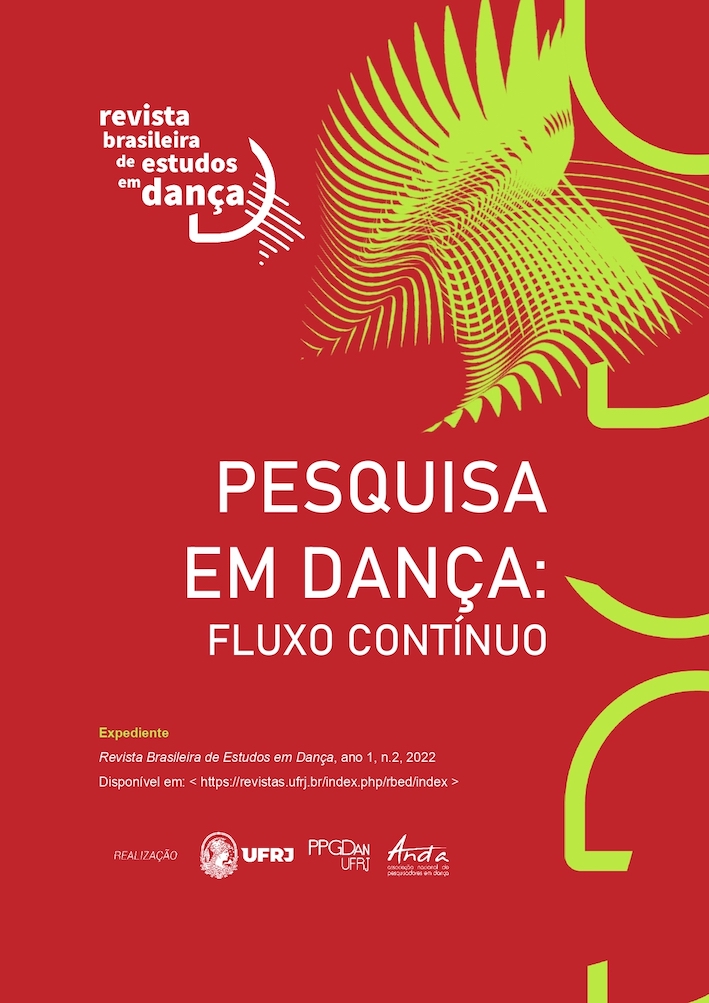A dança que move Joyce Barbosa:
uma narrativa perfil escrita em jornalismo literário
DOI:
https://doi.org/10.58786/rbed.2022.v2.n2.55384Palabras clave:
história da dança, Paraíba, mulheres, perfis jornalísticos, micro história.Resumen
Existem diversas maneiras para registrar a história da dança. Nesta
pesquisa foi eleito o viés jornalístico (primeira formação das autoras),
utilizando técnicas do jornalismo literário como forma de pesquisa e
escrita. Este trabalho é um fragmento de um produto jornalístico feito
como pesquisa, da mestranda Samara, no Mestrado Profissional de
Jornalismo na UFPB sob orientação da Prof. Drª Glória Rabay, tendo
como recorte a ação de mulheres com/na dança e que constroem um
viés autoral. Com entrevistas em profundidade, realizadas por vídeo
chamadas devido a pandemia de Covid-19, o diálogo com as perfila-
das foi transformado em narrativa perfil. Para tanto, a pesquisa teve
o apoio teórico dos pesquisadores Edvaldo Pereira Lima (1995), Ser-
gio Vilas-Boas (2007) eMônica Martinez (2014), ancorando-se tam-
bém nestes autores para realizar uma escrita em primeira pessoa.
Fazer esse registro histórico através dos perfis das artistas é o que
está incluído no pensamento e na proposta de micro história, sendo,
a partir deles, contada a história da dança na Paraíba, em especial
de João Pessoa.
Descargas
Descargas
Publicado
Versiones
- 2023-11-30 (2)
- 2022-12-30 (1)
Cómo citar
Número
Sección
Licencia
As pessoas autoras que publicarem na Revista Brasileira de Estudos em Dança são os responsáveis pelo conteúdo dos artigos assinados e retém os direitos autorais. Concedem à revista o direito de primeira publicação com o trabalho simultaneamente licenciado sob a Licença Creative Commons Atribuição-Não Comercial 4.0 (Open Archives Iniciative - OAI). Esse recurso, utilizado para periódicos de acesso aberto, permite o compartilhamento do trabalho para fins não comerciais com reconhecimento da autoria. Caso o texto venha a ser publicado posteriormente em outro veículo, a pessoa autora deverá informar que o mesmo foi originalmente publicado como artigo na Revista Brasileira de Estudos em Dança. Assim sendo, ainda que a revista seja detentora da primeira publicação, é reservado às pessoas autoras o direito de publicar seus trabalhos em repositórios institucionais ou em suas páginas pessoais, mesmo que o processo editorial não tenha sido finalizado.
É reservado à revista o direito de realizar alterações de ordem normativa, ortográfica e gramatical visando manter o padrão de língua, respeitando-se, porém, o estilo autoral.

